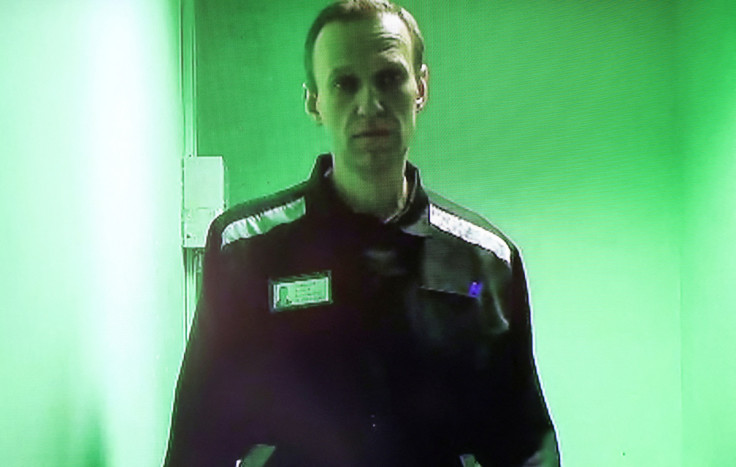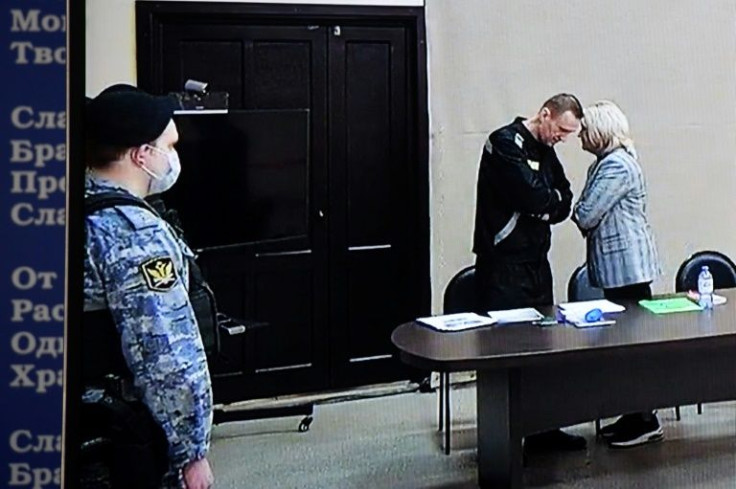Russia Punished Alexei Navalny After His Documentary Won An Oscar; Moved To 'Sh**ty Cell'

KEY POINTS
- Alexei Navalny was moved to a "very small" cell as a form of punishment, according to his chief of staff
- Leonid Volkov said Navalny has been sent to the punishment cell 12 times
- Kremlin criticized the Navalny documentary for having "elements of politicization"
Russia punished Alexei Navalny, a staunch critic of Russian President Vladimir Putin, after a documentary about the jailed Russian opposition leader won an Oscar earlier this month.
In an interview with Australia's ABC News, Leonid Volkov, Navalny's chief of staff, said the Putin critic was moved to a 2- by 3-meter "punishment cell" at the high-security prison facility where he is serving his sentence.
Volkov said this was Russia's response after the documentary "Navalny" won best documentary feature at the 2023 Oscars.
"We have all the possible reasons to suspect that there is a connection ... this is a very small and sh--ty cell... with a neighbor there who didn't wash himself for the last two months," said Volkov, who described the cell as "the most severe punishment within the Russian prison system."
Volkov said Russia sent Navalny to the punishment cell 12 times since he began serving his jail term.
"It's a continuation of the strategy that the Russian government is actually following ... to try to break down Alexei psychologically ... to make his life in prison unbearable," Volkov said.
During the 95th annual Academy Awards in Los Angeles on March 12, Navalny's wife, Yulia Navalnaya, had a special message for her jailed husband.
Navalnaya insisted that her husband was imprisoned "just for telling the truth."
"Alexei, I'm dreaming of the day when you will be free and our country will be free. Stay strong, my love," she said.
However, the documentary received backlash from Putin's spokesperson, Dmitry Peskov, who speculated it contained a "certain element of politicization" while admitting that he didn't watch the film.
Canadian filmmaker Daniel Roher directed the documentary, which focused on the investigation of Navalny's team and investigative journalism group Bellingcat, which aims to unravel the assassination attempt against the Russian opposition leader in 2020.
In the documentary, several agents of Russia's Federal Security Service were unmasked for their involvement in the poisoning of Navalny with a Novichok nerve agent.
The film premiered in January 2022 at the Sundance Film Festival, where it won the Audience Award and the Festival Favorite Award. It also won the BAFTA Award for best documentary in February this year.
Navalny is still languishing in the Russian prison despite the documentary's success.
In February, his lawyer Vadim Kobzev expressed concern after Navalny fell ill and began having stomach pains.
His issues began when Navalny, who had been suffering from a respiratory virus infection, was prescribed "huge doses" of antibiotics that were contraindicated for him.
The jailed Russian opposition leader's health woes resulted in him losing 7 kilograms (15 pounds).
Navalny also complained about Russian prison authorities' denial of family visits. He said he hadn't seen his family for 8 months, and it looked like he would not also see them for another 6 months after he was sent to a punishment cell.
Navalny, the most serious challenger to Putin's grip on power, is serving 11 and a half years in prison for alleged charges of parole violations, large-scale fraud and contempt of court.

© Copyright IBTimes 2024. All rights reserved.






















